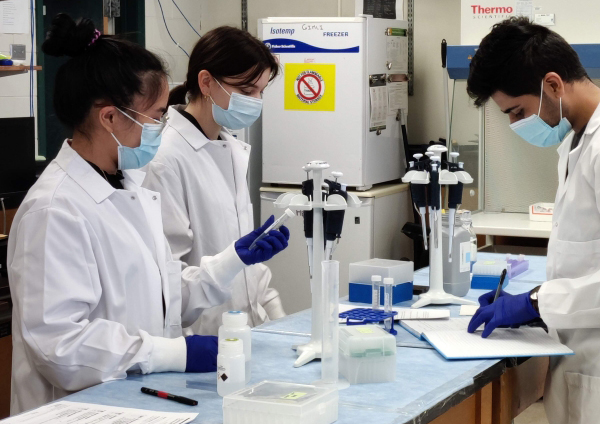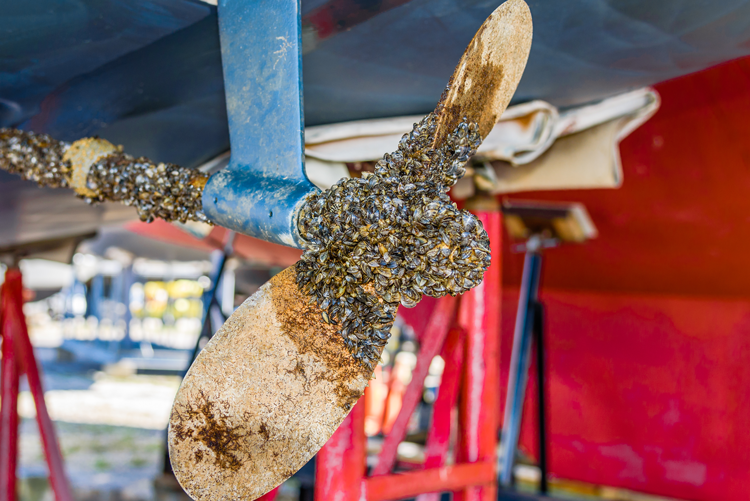
Science students to compete in Paris – win international biotech grant for zebra mussel control device
Once again, the University of Manitoba is among some of the world’s leaders in interdisciplinary research and application. UM’s Prairie iGEM Team, a group of undergraduates led by Dr. Hans-Joachim Wieden and Dr. Ned Budisa, are this year’s recipients of the Impact Grant from the International Genetically Engineered Machine (iGEM) Foundation.
With support from the Frederick Gardner Cottrell Foundation, Prairie iGEM has received a $2,500 grant to help level up their agenda. The team’s current focus is on zebra mussels, one of Manitoba’s invasive species that have now spread into Lake Winnipeg and Lake Manitoba.
The rapid spread of these mollusks can clog water intake systems increasing costs to communities and industries. This includes power generating stations, irrigation systems, water supply facilities, and drinking water infrastructure.
The Prairie iGEM team is working on an innovative approach to controlling zebra mussel populations. They aim to design a bio-based device that dispenses molluscsides specifically targeting zebra mussels after ingestion, allowing the device to remain dormant and only affect a single species instead of other native organisms. They are pursuing a method for zebra mussel detection through changes in water chemistry and recognition of zebra mussel’s internal environment, then determining the best timing for the secretion of the highly specific molluscsides. They are advancing their research in close collaboration with the University of Lausanne iGEM team from Switzerland.

Zebra mussels, an invasive species of fresh water mussels, on the propeller and shaft of a sailing yacht. Stock photo.
Over 250 teams across the globe applied for the Impact Grant, all of whom are considered international leaders in their respective disciplines. 90 teams with ingenious and inventive projects were selected, placing Prairie iGEM in the company of teams from some of the world’s highly esteemed post-secondary institutions including the Massachusetts Institute of Technology, (MIT), the University of Helsinki, Tokyo Institute of Technology, and so on.
“This project and the iGEM competition in general is a great example for how leading-edge synthetic biology research in the hand of undergraduates and graduate students paired with their ingenuity can contribute to solving emerging challenges in our communities”, says Dr. Wieden
Prairie iGEM is truly representing the University of Manitoba at the forefront of biology-based research and engineering. The iGEM Foundation envisions a scientific community where breakthroughs in laboratories translate to the world’s most pressing challenges, and Prairie iGEM fits perfectly into this world.
The Impact Grant will support the team’s progress in building their device and moving their project beyond the proof-of-concept stage. The grant will also allow the team to make advancements in stakeholder engagement and in the project’s application phase.
As part of iGEM the UM team of primarily undergraduate researchers will travel in October to the annual Grand Jamboree in Paris to compete with over 300 teams from around the globe for medals, awards, and the grant prize.
About iGEM
The iGEM is a non-profit organization dedicated to facilitating advancements in synthetic biology, education, and competition, and developing an open scientific community and collaboration. The Foundation hosts the annual iGEM Competition, pushing the limits of synthetic biology and its implications on complex challenges around the world. With applications in climate change response, human health enhancement, agricultural production optimization and more, iGEM has carefully selected teams with projects exemplifying what it means to positively impact the entire world by tackling one local problem at a time.
Research at the University of Manitoba is partially supported by funding from the Government of Canada Research Support Fund.






